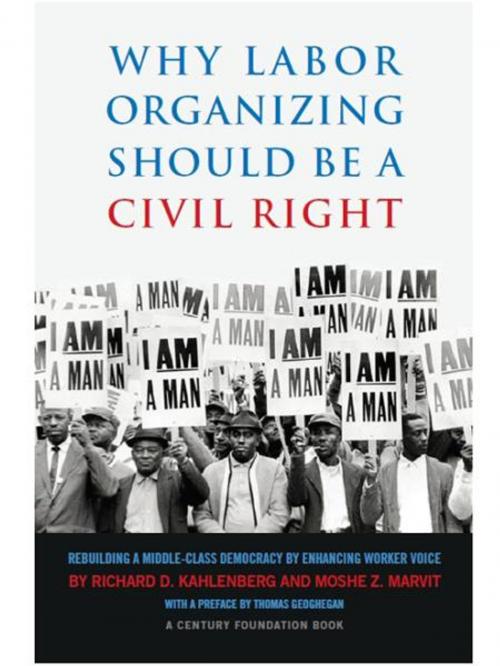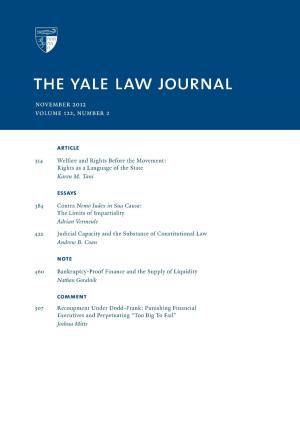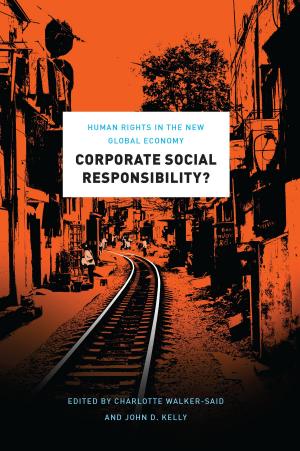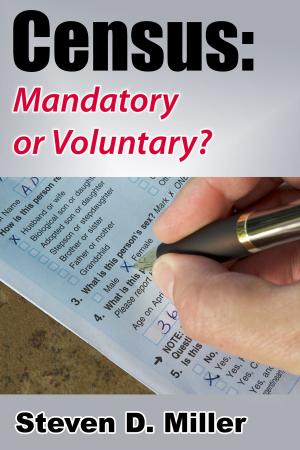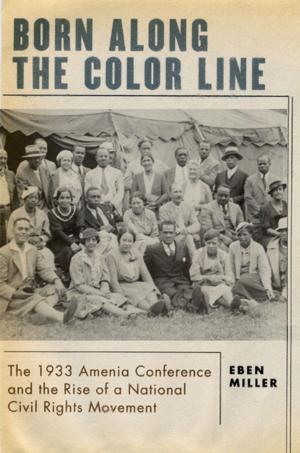Why Labor Organizing Should Be a Civil Right: Rebuilding a Middle-Class Democracy by Enhancing Worker Voice
Nonfiction, Reference & Language, Law, Civil Law, Labour & Employment, Social & Cultural Studies, Political Science, Politics, Civil Rights| Author: | Richard D. Kahlenberg, Moshe Z. Marvit | ISBN: | 9780870785245 |
| Publisher: | The Century Foundation, Inc. | Publication: | April 3, 2012 |
| Imprint: | The Century Foundation Press | Language: | English |
| Author: | Richard D. Kahlenberg, Moshe Z. Marvit |
| ISBN: | 9780870785245 |
| Publisher: | The Century Foundation, Inc. |
| Publication: | April 3, 2012 |
| Imprint: | The Century Foundation Press |
| Language: | English |
American society has grown dramatically more unequal over the past quarter century. The economic gains of American workers after World War II have slowly been eroded—in part because organized labor has gone from encompassing one-third of the private sector workers to less than one-tenth. One reason for the labor movement's collapse is the existence of weak labor laws that, for example, impose only minimal penalties on employers who illegally fire workers for trying to organize a union. Attempts to reform labor law have fallen short because labor is caught in a political box: To achieve reform, labor needs the political power that comes from expanding union membership; to grow, however, unions need labor law reform. Why Labor Organizing Should be a Civil Right lays out the case for a new approach, one that takes the issue beyond the confines of labor law by amending the Civil Rights Act so that it prohibits discrimination against workers trying to organize a union. The authors argue that this strategy would have two significant benefits. First, enhanced penalties under the Civil Rights Act would provide a greater deterrent against the illegal firing of employees who try to organize. Second, as a political matter, identifying the ability to form a union as a civil right frames the issue in a way that Americans can readily understand. Why Labor Organizing Should be a Civil Right explains the American labor movement's historical importance to social change, it provides data on the failure of current law to deter employer abuses, and it compares U.S. labor protections to those of most other developed nations. It also contains a detailed discussion of what amending the Civil Rights Act to protect labor organizing would mean as well as an outline of the connection between civil rights and labor movements and analysis of the politics of civil rights and labor law reform. Praise for the book: "Richard Kahlenberg and Moshe Marvit make a persuasive case for strengthening workers’ rights in a time of rising inequality. They also offer a clear-eyed analysis of the linked destiny of the labor and civil rights movements in America. In these times when civil rights and workers rights are under simultaneous attack, this book is a must read." —Benjamin Todd Jealous, NAACP President and CEO "Organizing all too often under current law is “a right without a remedy.” Kahlenberg and Marvit provide a persuasive roadmap for extending the protections of the Civil Rights Act to workers who want to organize a union. Why Labor Organizing Should Be a Civil Right provides a significant conceptual and practical framework for protecting the rights of workers to organize and for advancing equal opportunity, economic fairness, and social justice." —Randi Weingarten, President, American Federation of Teachers "The growing disconnect between productivity and wages in America is not the result of some set of economic physical laws of nature, as some would have us believe, but instead directly linked to the political attacks by the right to undermine the laws of collective bargaining. While today’s labor laws and employment arrangements would benefit from an overhaul, it is unlikely that the political space and will for reform will result without a call to make economic justice the civil rights issue of our day. Richard Kahlenberg and Moshe Marvit’s prescription is just what our nation needs. This book is a must read!!!" —Amy B. Dean, principal of ABD Ventures, LLC, and Former President and CEO, South Bay AFL-CIO Labor Council "This book couldn’t come at a better time—just as America is beginning to discuss how to address our record high economic inequality. The future of the American middle class depends upon rebuilding the labor movement. Kahlenberg and Marvit offer a provocative solution to address the failures with the law that have so weakened unions. The book should spark a needed conversation about how to best ensure that workers can join a union if they want." —David Madland, Director, American Worker Project, Center for American Progress
American society has grown dramatically more unequal over the past quarter century. The economic gains of American workers after World War II have slowly been eroded—in part because organized labor has gone from encompassing one-third of the private sector workers to less than one-tenth. One reason for the labor movement's collapse is the existence of weak labor laws that, for example, impose only minimal penalties on employers who illegally fire workers for trying to organize a union. Attempts to reform labor law have fallen short because labor is caught in a political box: To achieve reform, labor needs the political power that comes from expanding union membership; to grow, however, unions need labor law reform. Why Labor Organizing Should be a Civil Right lays out the case for a new approach, one that takes the issue beyond the confines of labor law by amending the Civil Rights Act so that it prohibits discrimination against workers trying to organize a union. The authors argue that this strategy would have two significant benefits. First, enhanced penalties under the Civil Rights Act would provide a greater deterrent against the illegal firing of employees who try to organize. Second, as a political matter, identifying the ability to form a union as a civil right frames the issue in a way that Americans can readily understand. Why Labor Organizing Should be a Civil Right explains the American labor movement's historical importance to social change, it provides data on the failure of current law to deter employer abuses, and it compares U.S. labor protections to those of most other developed nations. It also contains a detailed discussion of what amending the Civil Rights Act to protect labor organizing would mean as well as an outline of the connection between civil rights and labor movements and analysis of the politics of civil rights and labor law reform. Praise for the book: "Richard Kahlenberg and Moshe Marvit make a persuasive case for strengthening workers’ rights in a time of rising inequality. They also offer a clear-eyed analysis of the linked destiny of the labor and civil rights movements in America. In these times when civil rights and workers rights are under simultaneous attack, this book is a must read." —Benjamin Todd Jealous, NAACP President and CEO "Organizing all too often under current law is “a right without a remedy.” Kahlenberg and Marvit provide a persuasive roadmap for extending the protections of the Civil Rights Act to workers who want to organize a union. Why Labor Organizing Should Be a Civil Right provides a significant conceptual and practical framework for protecting the rights of workers to organize and for advancing equal opportunity, economic fairness, and social justice." —Randi Weingarten, President, American Federation of Teachers "The growing disconnect between productivity and wages in America is not the result of some set of economic physical laws of nature, as some would have us believe, but instead directly linked to the political attacks by the right to undermine the laws of collective bargaining. While today’s labor laws and employment arrangements would benefit from an overhaul, it is unlikely that the political space and will for reform will result without a call to make economic justice the civil rights issue of our day. Richard Kahlenberg and Moshe Marvit’s prescription is just what our nation needs. This book is a must read!!!" —Amy B. Dean, principal of ABD Ventures, LLC, and Former President and CEO, South Bay AFL-CIO Labor Council "This book couldn’t come at a better time—just as America is beginning to discuss how to address our record high economic inequality. The future of the American middle class depends upon rebuilding the labor movement. Kahlenberg and Marvit offer a provocative solution to address the failures with the law that have so weakened unions. The book should spark a needed conversation about how to best ensure that workers can join a union if they want." —David Madland, Director, American Worker Project, Center for American Progress
